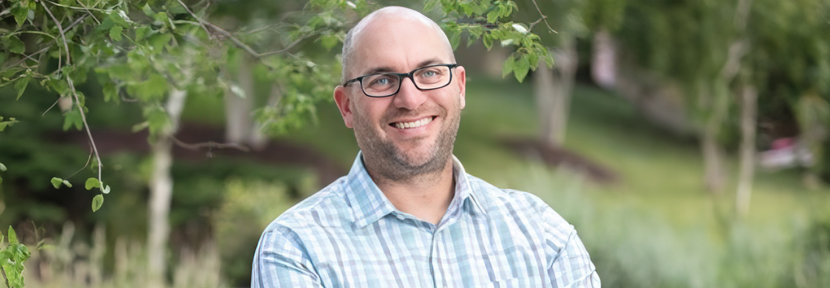6m Watch
March 10, 2025
COMMUNITY AND GLOBAL HEALTH
Video
The Fight to End Tuberculosis in Pakistan
Tuberculosis is a public health challenge in Pakistan, and unfortunately, the country is fifth among high-burden countries for TB. An estimated 608,000 new TB cases emerge every year.
Listen to Dr. Sabira Tahseen, Advisor, National TB Reference Laboratory, National Tuberculosis Control Programme, and Dr. Faisal Siraj, Deputy National Coordinator, Common Management Unit, National TB Programme discuss the challenges the country faces, including access to TB service delivery and the need for increased awareness of the disease and treatment options in the community. “Now it’s our responsibility to reach these people,” says Dr. Tahseen.
Tahseen, Siraj, and Dr. Adeel Tahir, Director Mercy Corps Pakistan, also discuss the major changes in TB diagnostics in the last 10 years, including improved diagnostic capabilities and facilities in the country. Watch the video to learn more about how these changes are impacting the disease burden in the country.
Dr. Sabira Tahseen:
Tuberculosis is a public health challenge in Pakistan and Pakistan, unfortunately, is fifth among high-burden countries for TB. We have an estimated incidence of 608,000 new TB cases emerging every year.
Dr. Faisal Siraj:
However, in 2023, we succeeded in diagnosing and registering 475,000 TB cases throughout the country, leaving a gap of 125,000 TB cases.
Dr. Sabira Tahseen:
We need to find these cases. These probably are the cases who don't have access to TB service delivery or who are not aware of the disease they're suffering and are not reaching out to healthcare. Now, it's our responsibility to reach these people.
We have seen major changes in the last ten years. Top of the list is the advancement in TB diagnostics.
Dr. Faisal Siraj:
We improved the diagnostic capabilities and facilities of the country, with the introduction of more rapid diagnostic tool, as per WHO recommendations and the digital x-ray tools with artificial intelligence.
Dr. Sabira Tahseen:
The second achievement, which we have seen in the last 10 quarters, is engagement of the private sector.
Dr. Faisal Siraj:
The private partners are very effectively working at the DR-TB interventions, especially the programmatic management of drug-resistant TB sites.
Dr. Sabira Tahseen:
We underwent an exercise for diagnostic network optimizations, and as a result of this, around 60 more machines are now installed in the private sector, at the district level.
The last thing what we have new intervention is preventive treatments. Preventative treatment is given to the patients who are contact of TB patients and who are truly at risk of developing TB. So giving them preventive treatment, would mean that we would stop these patient developing TB and we would have a real impact on the disease burden in the country.
We have seen the major progress in the last 10 years, but what we see is still one 125,000 TB cases are missed in diagnosis. These people will probably have some barriers reaching to the healthcare facilities. Or these are the people who are at high risk. For example, the prisoners, the refugees. This get is only possible by active screening and active case finding.
Dr. Faisal Siraj:
To address the challenge, we engaged the community more robustly in the problem identification, planning and accountability. We engaged the private partners, Mercy Corps.
Dr. Adeel Tahir:
Mercy Corps is an international NGO, with the support of the Global Fund, and we have been the principal recipient of Global Fund since 2007.
The main flagship program of Mercy Corps Pakistan is TB control program. The active case finding intervention is very novel and innovative. We go into the far-flung areas, where the patients do not have access to the healthcare facilities. And that we do through 40 mobile vans that are digitally equipped with x-rays and artificial intelligence software.
The software automatically scores the x-rays images and then accordingly, the staff and the doctor decides whether the patient should be labeled as a TB presumptive or not. Once the patient is labeled as presumptive, we take their sputum sample and on the same chest scan, we run that sample through GeneXpert and then the diagnosis is confirmed. We currently do around 600 to 800 chest camps in a month, through these 40 mobile vans.
Another active case-finding intervention is specimen transportation model. Once a sputum sample is collected at a health facility, then the community volunteer, who is not our staff, they go to the health facility, pick up the sample, and then transport it to the GeneXpert site. So this way we transport the sample without the need of the patient to go directly to the health facility or the diagnostic facility.
Currently, we are transporting around 1,000 samples per day, so this is a huge achievement and I must say that through this intervention, we are finding more and more TB cases.
Dr. Sabira Tahseen:
I think the National TB Control Program has come a long way. We have made great progress, but still a lot need to be done.
Dr. Faisal Siraj:
It's not just the responsibility of government of Pakistan. It is not just the responsibility of international donors. It is not just the responsibility of the private partners, but it is the responsibility of the entire key stakeholders.
Dr. Sabira Tahseen:
With these new tools and new approaches, all this give us hope that we can eliminate TB from Pakistan.
Read Next
More








